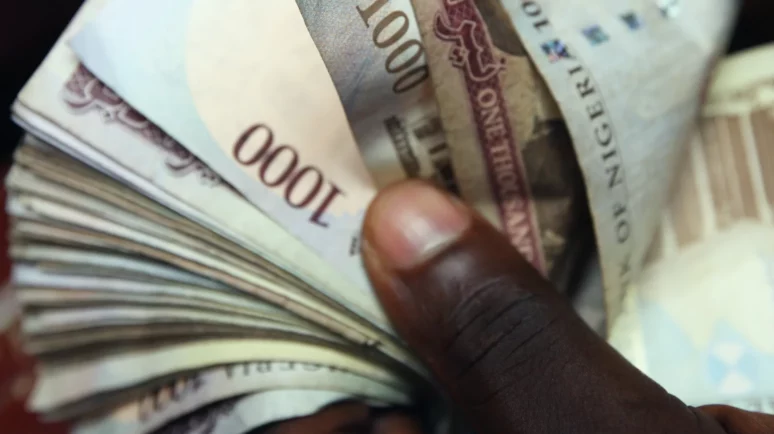Nigerian SEC Wants To Pump Crypto Registration Fees 400%, is Nigeria a Bad Bet for Blockchain?

Nigerian crypto firms may be paying up extra registration and processing fees.
w Key Takeaways
- Crypto firms may have to significantly increase registration fees.
- Nigeria’s crypto industry is in flux as the economy remains weak.
- Probes into Binance are ongoing, its two executives remain detained in Nigeria
Nigeria’s Securities and Exchange Commission (SEC) is proposing to increase registration fees for cryptocurrency firms by 400% amid growing pressure around the nation’s crypto industry.
The SEC’s notice comes amid turmoil for the Nigerian crypto market. The authorities are tightening their grip on what was one of the fastest-growing crypto economies in 2023. So, what happened to one of the largest adopters of crypto in Sub-Saharan Africa?
Crypto Registration Fees Up
According to the SEC’s proposed amendment published last Frida y, crypto exchanges, custody platforms, and crypto issuers will see 400% increases across all supervision fees.

The original fees, which began as 100,000 naira per application and 30 million naira per registration, totaling somewhere around $19,000, will increase to 300,000 naira per application, and 150 million naira per registration—or $96,000 in total.
In addition, processing and sponsored individual fees will increase to 1 million naira and 300,000 naira respectively. One particular area of contention amongst all these fee increases for Nigerian stakeholders is the doubling of the “evidence of required minimum paid-up capital” to 1 billion naira, or $650,000.
New Rules for Foreign Firms
One could argue that this makes domestic firms less competitive against foreign crypto companies. However, the SEC says this move is in line with their recent discussions with relevant stakeholders, as well as developments Central Bank of Nigeria (CBN). It says stating these amendments are:
“To rearrange the Rules in order to provide clarity to the market as well as to incorporate suggestions from industry stakeholders particularly with regards to the recent engagements with the CBN”
Foreign operators are also in the crosshairs of the proposed amendments. The SEC now requires Virtual Asset Service Providers (VASPs) to “be incorporated and maintain an office in Nigeria”. In addition, the SEC suggests the managing director or CEO of said firm must also reside in Nigeria.
Against the backdrop of tensions between the government and major industry players, crypto seems to be on the back foot just months after the government lifted its ban on crypto in December 2023.
Unfortunately, the recent activity of Binance in Nigeria appears to be at the crux of this matter. At least, it is in the eyes of Nigerian authorities.
Binance Nigeria Faces Issues in Crypto Crackdown
Since the start of 2024, Binance has continuously found itself in the scope of Nigerian regulators and politicians. The exchange stands accused of market manipulation, which has damaged the economy and the naira. It is also allegedly processing or laundering some $26 billion in illicit/unknown transactions.
Matters worsened for Binance when two executives, one of whom is Binance’s Head of Financial Crime Compliance, were detained without charge since the end of February. Within a week, Binance Nigeria announced it would discontinue all naira trading options, effectively pulling out of Nigeria altogether.
In the weeks that followed, authorities received “intelligence ” to suggest that Binance had potentially committed money laundering and terrorism financing crimes, confirming authorities’ suspicions. The government is also seeking $10 billion in fines from the firm.
At present, the Binance execs remain in Nigeria with authorities seeking to extend their detainment. In addition, a recent ruling from a Nigerian high court has also requested Binance disclose all Nigerian user data.
The Bigger Picture for Crypto in Nigeria
In Chainalysis’ “2023 Cryptocurrency Geography Report”, Nigeria ranked second in crypto adoption amongst 154 other countries.
Whilst the Nigerian economy has struggled against the tides of inflation, its citizens turned to crypto. This was despite there being a ban in place up until December 2023. Indeed, this has been a common narrative for countries experiencing troubling economic conditions.
Somehow, along the way, whether through the fault of Binance, or a convergence of many factors, the naira’s value continues to slide and Nigeria’s domestic industry appears to be suspended in uncertainty.
Although the headlines may appear to signal Nigeria as a no-go zone for crypto, this may be yet another instance of distinct growing pains for an industry being adopted en masse by a nation’s population.
Looking Ahead
Ultimately, the Nigerian government needs to establish more robust measures to ensure a range of things. Firstly, that crypto users aren’t leveraging it for criminal purposes. Secondly, they aren’t being manipulated, which further damages the nation’s economy. Finally, it has to ensure crypto firms are establishing business in Nigeria in good faith.
At least, that’s the more optimistic view of things. The SEC remains open to feedback on its suggested amendments, with a deadline for statements of March 29, 2024.


